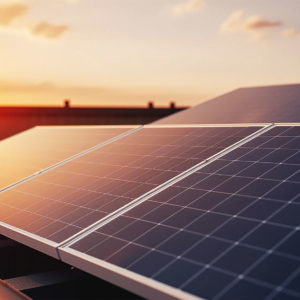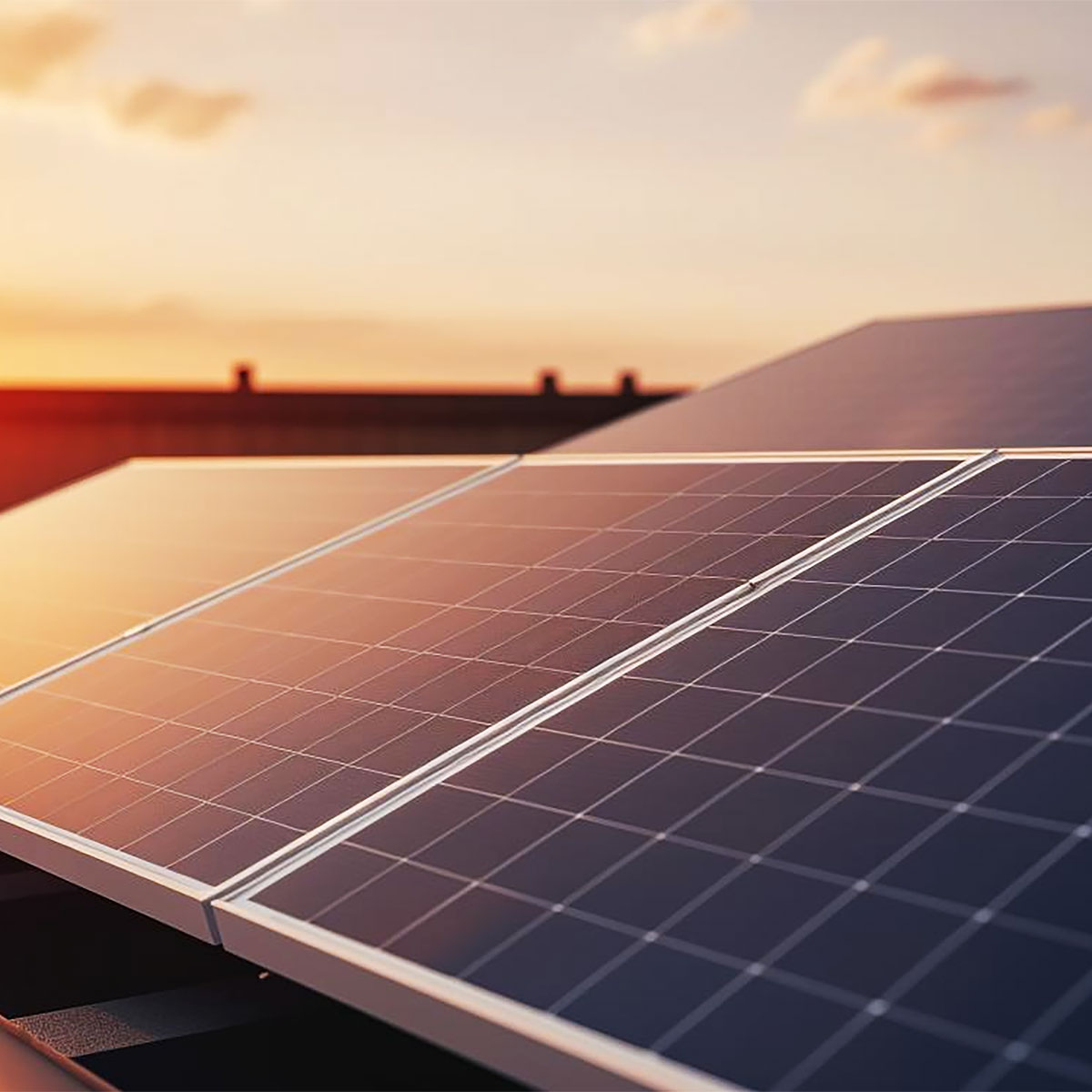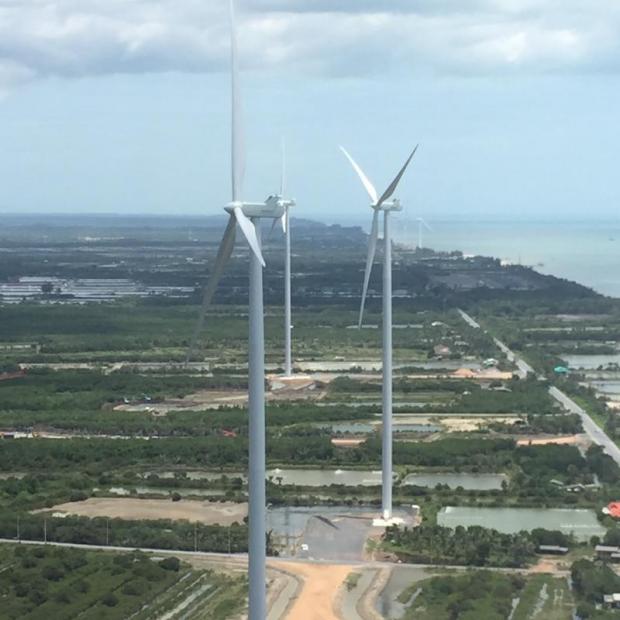
Photo © 123rf.com
Solar solutions for Thailand
Several organisations are pushing to make renewable energy accessible as electricity costs rise
Four years ago, Boonyuen Siritham, president of the Thailand Consumers Council (TCC), paid around 17,000 baht to 18,000 baht monthly in petrol and electricity bills. As an environmentalist, she aimed to reduce greenhouse gas emissions and cut her expenses so she decided to install a solar rooftop and switched to an electric car. Since then, she pays only 2,500 baht per month for electricity.
Due to new electricity charges set by the Energy Regulatory Commission of Thailand, Thais are paying more expensive power bills. As a result, many people have become interested in installing solar rooftops. However, the prices of solar cells is high. Boonyuen revealed that she invested nearly 100,000 baht in a 3kW PV (kiloWatt photovoltaic) solar panel system to reduce her power bill. The president of the TCC mentioned that she would benefit from “Net Metering” if there was such a policy in Thailand.
According to the TCC, Net Metering is a policy that allows the public to install solar cells on their rooftops and sell the surplus electricity back to the power grid. This surplus electricity is deducted from electricity units consumed by the homeowner before calculating electricity charges for that month. This policy is widely adopted in many countries, but not here.
To raise awareness about utilising solar panels and discuss expensive electric bills, the TCC organised an online forum “Solar Sojai: Alternative Energy For Reducing Electricity Bills”.
When Pimpajee Yenura, the host and lecturer at the Faculty of Journalism and Mass Communication, Thammasat University, questioned Boonyuen if she thought the cost of electricity is expensive, Boonyuen answered that the cost of electricity has become higher than normal.
“It is unusual for our electricity bills to be this expensive. This is a result of mismanagement. Electricity production policy allows private companies to generate electricity with no specified production quotas. This has led to endless auctions of power plants. The standard backup power is usually only 15%, but Thailand’s backup power is around 60% to 70%,” explained Boonyuen.
“The Electricity Generating Authority of Thailand [EGAT] purchases surplus electricity and is not responsible for overproduction. However, when EGAT incurs losses, they push the burden to residents through inflated electricity bills. The electric bills are expensive not because the residents use a lot of electricity, but because there is mismanagement. The Energy Regulatory Commission [ERC] has never specified how much electricity should be produced to avoid burdening Thais. The ERC, the prime minister and the minister of energy have never shown interest in the issue. Instead, they are willing to shift the burden onto Thai people,” Boonyuen added.
Verapat Rittapirom, renewable energy advocate of Greenpeace Thailand, agreed with Boonyuen.
“According to EGAT’s website, it produces only 30% of the total electricity and purchases 70% from private power generators. Because this electricity is bought from other companies, it becomes expensive as private power generators naturally aim for profits. To help people get reasonable pricing, EGAT must halt new power plant contracts and investments. Existing contracts signed by EGAT with private generators remain in effect for 20 to 25 years. This means Thai people will bear the burden of expensive electric bills for decades,” said Verapat.
Boonyuen further explained that EGAT’s contract with private power generators are “take or pay” agreements. These commit EGAT to purchase a certain quantity of energy or capacity from the generators. Even if EGAT does not utilise or accept delivery of the agreed-upon amount, they are still obligated to pay for it.
“This contract essentially benefits private power generators,” Boonyuen stated. “People end up paying even on days when the power plants aren’t operating. The TCC recognised this issue and requested the ERC to negotiate with private generators to reduce their earnings during periods of plant inactivity. Unfortunately, the ERC refused to negotiate, instead deciding to shift the burden onto consumers.”
Due to soaring electric bills, people are turning to alternative energy sources. As a renewable technology, solar power offers both environmental benefits and long-term cost stability. Boonyuen said the Thailand Solar Fund — a collaboration project between the TCC and Greenpeace Thailand — has raised funds to install solar panels in seven government hospitals, including Thasongyang Hospital in Tak, Langsuan Hospital in Chumphon and Phrapokklao Hospital in Chanthaburi. These solar panels can help each hospital to save approximately 200,000 baht annually in cost.
Additionally, Greenpeace Thailand launched the Rooftop Revolution project which aims to install a million solar rooftops for low-income people. Verapat, who surveyed residents’ needs for solar panels, discovered a strong desire for solar roofs.
“People want to install solar, especially in areas lacking access to the electricity service. Many residents resort to learning from online tutorials to install their own systems. One retired lecturer, who runs a durian orchard, saw his monthly electric bill plummet from nearly 10,000 baht to next to nothing after installing solar panels. It is interesting to learn that this retired lecturer could afford the solar panels due to a loan from a community co-operative with low interest. This offers an alternative financing option for people who want solar,” he said.
While the need for solar installations is increasing, participants in the forum expressed concerns about safety. One participant mentioned a news report about a luxurious house that caught fire and the cause was thought to be linked to solar roofs. However, a recent Matichon report stated that the fire was caused by a 30-year-old refrigerator, not solar technology.
Boonyuen encouraged people to believe in the benefit of solar technology.
“There is more news about house fires caused by electrical short circuits than fires caused by solar cells. However, people still rely on electricity from power lines. Imagine how beneficial it could be if our home rooftops could reduce expenses and generate income for us every day.”
To help people, the TCC and Greenpeace Thailand have urged the government to enact fair regulations for solar technology.
“Loans for solar rooftops should be easily approved, similar to car or house loans. Solar technology offers quick returns, typically within five to seven years. The government should implement a Net Metering system or any system which provides equal rates for buying and selling electricity. Currently, people pay over 4 baht per unit for electricity, while the Metropolitan Electricity Authority and Provincial Electricity Authority purchase solar-generated electricity at only 2.20 baht per unit. Net Metering has been used in many countries, such as the US, Philippines, Vietnam and Malaysia. It is time for Thailand to adopt it,” explained Verapat.
Additionally, Boonyuen revealed that the TCC, Greenpeace Thailand and several organisations will propose a revised edition of the public sector’s Power Development Plan.
“The government says they are following the current plan which does not include solar technology. Therefore, we need to create a new plan supported by the public sector. Our plan will bring justice to everyone.”
Source: https://www.bangkokpost.com/life/social-and-lifestyle/2740559/solar-solutions



